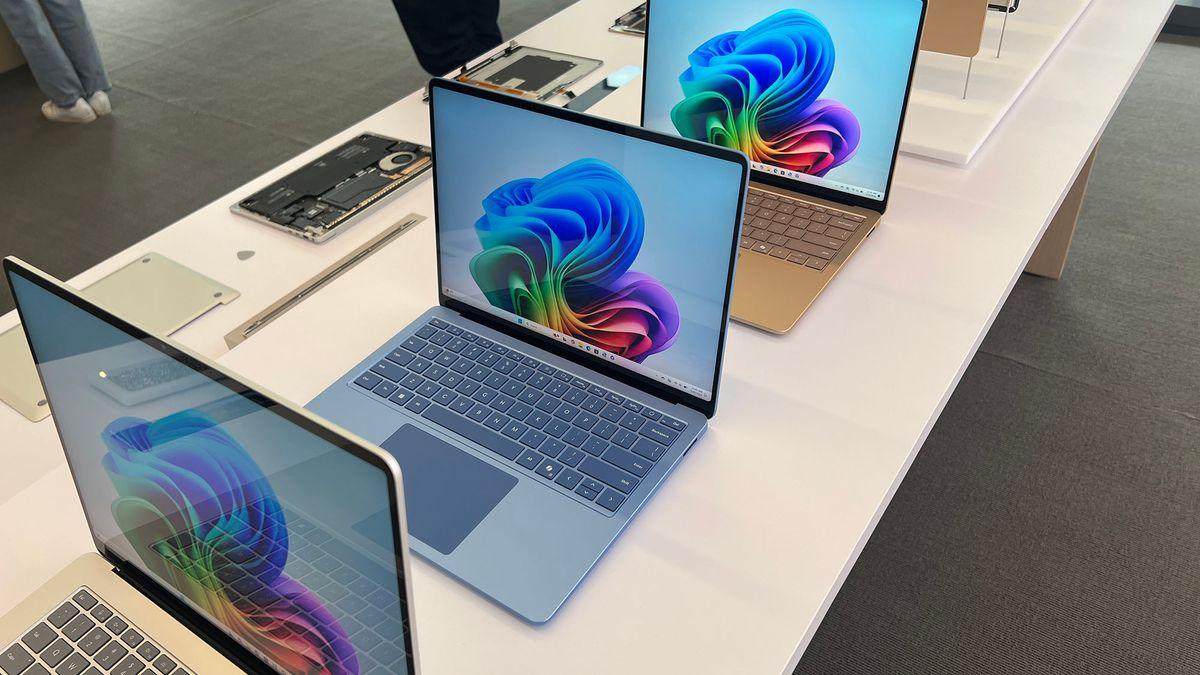- Analyst firm Context shared sales data for the fourth quarter of 2024
- Copilot+ PCs haven’t seen much growth, despite price drops
- More affordable Arm-based Copilot+ PCs likely to help Microsoft’s cause in 2025
Microsoft and its manufacturing partners reportedly slashed prices for Copilot+ PCs late last year, but those cuts haven’t boosted sales, according to an analyst firm – which could indeed be worrying for the future .
The Register highlighted the decision apparently made in the last quarter of 2024, in which these AI laptops were discounted by 10%, compared to the average selling price of distributors in Europe.
Marie-Christine Pygott, senior analyst at Context, told The Register: “While price reductions helped drive some interest in the fourth quarter, the value proposition of these devices [Copilot+ PCs] still needs to be communicated more effectively to users.
On a more positive note, Pygott added: “As the concept matures, awareness grows, and a wider range of price points is addressed, we expect adoption rates to increase in 2025.”
The analyst tells us that more broadly, PC sales in Europe (for desktops and tablets, as well as laptops) saw solid growth in the final quarter of last year, and sales for December rose 7% year-over-year, in fact.
During the quarter, AI-enabled laptops saw their adoption rate rise to 32%, up from 22% in Q3 – but despite the upward movement, this fell short of some forecasts (from growth of 40%).
However, the definition of an AI-enabled laptop is any device that has an NPU to power AI workloads, regardless of how powerful that NPU is. Copilot+ PCs are a separate category within this category, requiring a powerful NPU of at least 40 TOPS, and in this subdivision growth has been much lower – it went from 3% to just 5%, according to Context .
Pygott told The Register that the leading laptops in the AI PC world were Apple’s MacBooks (in Europe and the UK), but that Lenovo and HP were making strong gains in market share (on the database of distributor sales data, note, not retail sales).
While Microsoft’s Surface devices hold pole position among the Copilot+ PC subcategory, unsurprisingly given the quality of these laptops (the latest Surface Laptop is not only a great Copilot+ device, but also our best computer portable overall, in fact).
Analysis: pricing and perception
We have to be cautious about just one set of analyst numbers, but the sales picture presented here looks rather weak. So what should Microsoft do and its major Copilot+ PC project?
As Pygott points out, there are two obvious problems. Firstly, these devices were too expensive at launch, and secondly, people don’t really understand what the AI in an “AI PC” adds to the overall experience (for good reason, and we’ll get to that).
As Pygott observes: “These [Copilot+ PCs] are currently in the premium price range, but their added value is not always clear to users. We think this will change as users understand more clearly what these PCs can do and how the way they use a PC will change with AI, but it will take time.
As for cost concerns, as Pygott tells us, “a wider range of price points are being addressed,” which refers to the progress being made in introducing cheaper Snapdragon X chips. This will make it easier to release more affordable Arm-based Copilot+ PCs (and Arm processors are still the majority for these devices).
First, the 8-core Snapdragon X Plus processor arrived in September 2024, paving the way for more affordable Copilot+ PCs around the $800 level. Then the new vanilla Snapdragon
Evolutions of these Arm-based laptops may shrink the Snapdragon processor, but importantly, they don’t waste the powerful onboard NPU – it’s the same as in higher-tier Snapdragon chips – so they still fully qualify as Copilot+ PCs , just models in truly affordable territory (on Black Friday or otherwise, we might see $500 price tags). And that should go a long way to boost sales, which, after all, should really take off this year (and through the rest of the decade).
The other sticking point in getting people to understand the benefits of an AI-focused laptop is a trickier proposition, involving Microsoft beefing up the AI tricks infused into Windows 11, and particularly the PC-exclusive Copilot+ features , of course – such as Recall.
That will be the first thing to do: get Recall out of testing and working properly so that the feature sheds its controversial reputation (if that is indeed possible, at this stage of the game). But it seems unlikely for Microsoft that its suite of AI capabilities will have any real impact on public perception, at least in 2025, anyway.
The danger is that if it takes much longer, the Copilot+ PC project will find itself struggling with a sense of confusion and pointlessness around these devices, which will do the brand a disservice.
On a more positive note, it’s not like good things aren’t being done with this category of devices – they certainly are. As noted, Microsoft’s latest Surface devices have seriously impressed us here at TechRadar, and an Asus Copilot+ PC was one of the most promising laptops we’ve seen recently at CES 2025. But even though these machines can be great in many ways, the idea of where AI fits in and why it is such a key aspect – when it really isn’t, not yet – remains the thorny question.




